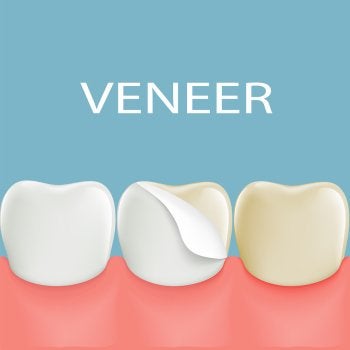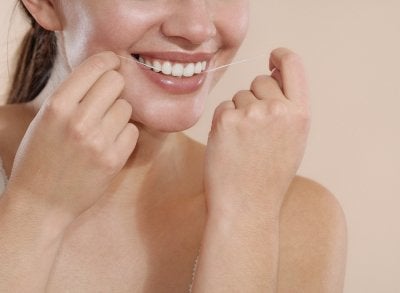-
Comparing Porcelain Veneers and Lumineers
There are so many dental treatments available in modern society that it can be easy to mix some of them up. This is especially true for treatments like porcelain veneers and dental Lumineers in Bel Air, MD, which have a number of elements in common. However, they are not identical treatments and are each more appropriate in certain situations. If you want to decide which of these cosmetic dentistry treatments is right for you, be sure to do some research and talk to your dentist. If you are interested in comparing porcelain veneers and Lumineers, read ahead.

Similarities
From implants and implant-supported bridges to dental bridges and composite fillings, many different types of cosmetic dentistry procedures share a wealth of similarities. However, porcelain veneers and dental Lumineers tend to be particularly easy to confuse. Both of these types of treatments are made with porcelain materials, and they both seek to cover parts of your teeth for a better aesthetic appearance. Veneers and Lumineers can both be used to cover cracks, gaps, and chips as well as stains and discoloration; some patients even use these treatments specifically for cosmetic purposes.
Differences
Although porcelain veneers and dental Lumineers are made from similar materials and designed to treat similar conditions, they are not exactly the same. While porcelain veneers are thin shells for the teeth, dental Lumineers are even thinner. As such, Lumineers are typically used to deal with more minor imperfections than substantial changes. They also require the removal of a smaller portion of the tooth than porcelain veneers. Depending on the thickness of the tooth and the nature of the problem you’d like to correct, one treatment may be more appropriate than the other.
Which Is Right for You
It’s always a good idea to do some research when you are thinking about undergoing a certain type of procedure, but it’s important to talk with your dentist. Make an appointment with your dental office so your dental health professional can perform an evaluation. Porcelain veneers tend to be more applicable to those with more obvious problems, while Lumineers lend themselves to those with thinner teeth.
-
How Diabetes Can Affect Your Oral Health
Diabetes is a medical condition that can affect all of the major systems of the body. If you have diabetes, you may be surprised to learn that your oral health can also be affected by this disease. Fortunately, with services and care from a general dentistry office in Bel Air , you will be able to make sure that your teeth and gums remain healthy and strong. Your dental office can assist you with tooth filling, general cleanings, and a variety of other important dental care services. To help you care for your teeth, here is a look at how diabetes can affect your oral health.

Gum Disease
People with diabetes are more likely to develop gum disease than non-diabetics. Gum disease occurs in stages, and can be reversed if it is detected early. The beginning stage of gum disease is known as gingivitis. As gum disease progresses, puffy, red gums may start to bleed and recede. Advanced gum disease may result in tooth loss, abscesses, and other very serious issues.
Tooth Loss
Diabetic patients may also find that they are at increased risk of experiencing tooth loss. There are many reasons why a person may lose a tooth in adulthood. A tooth may need to be extracted if it is severely decayed or infected. Problems with the gum surrounding the tooth may also result in tooth loss. Fortunately, cosmetic dentistry procedures can be used to fill in the space left by a missing tooth and restore a patient’s smile.
Dry Mouth
Dry mouth is another oral health problem that is associated with diabetes. When a patient has a frequently dry mouth, he or she may develop ulcers, sores, and frequent cavities. Dry mouth is also a very uncomfortable condition. With services from a dentist in your area, you can prevent and treat any of the oral health issues that are associated with diabetes. Your dentist can keep your smile healthy and brilliant throughout your lifetime.
-
Are Sports Drinks Safe for Your Smile?
Sports drinks might seem like a healthy choice, perhaps because they are marketed toward fitness enthusiasts. However, pediatric dentists in Bel Air, MD, warn parents that sports drinks can actually be just as harmful for teeth as soda. They can increase the risk of dental cavities, which require tooth fillings to correct. One way that sports drinks are harmful for teeth is the amount of sugar. The bacteria in the mouth thrive in sugary environments. As the bacteria feast on sugar, they produce acids as a byproduct. These acids wear away the enamel on the teeth and create dental cavities.
Some sports drinks might seem to be healthier for teeth because they are sugar-free. But in fact, even sugar-free drinks can wear away as much enamel as sugary beverages can. This is because these beverages tend to contain phosphoric acid, citric acid, and tartaric acid. The acidic nature of these beverages has a corrosive effect on the teeth. Instead of sports drinks, pediatric dentists recommend drinking milk or water.

-
Your Guide to Lumineers
If you feel insecure about your smile , your dentist in Bel Air, MD, may have suggested Lumineers. Lumineers are porcelain veneers that are designed to treat a wide range of problems in cosmetic dentistry. With Lumineers, your dentist can help you achieve whiter and perfectly aligned teeth. If you want to achieve the smile of your dreams, talk to your dentist about porcelain veneers. Keep reading to answer some frequently asked questions about how Lumineers work.

What Are Lumineers?
Lumineers are tooth-colored sheaths that fit completely over the fronts of teeth. These veneers are crafted from thin porcelain that can be matched exactly to surrounding teeth. Unlike traditional veneers, which can be thick and require a dentist to remove surrounding tooth structure, Lumineers are digitally designed to be ultra-thin. Lumineers have about the thickness of average contact lenses, so they can be placed precisely over teeth and blend in seamlessly with your smile.
What Kinds of Problems Do Lumineers Correct?
Dentists use Lumineers to correct many cosmetic problems. Lumineers can completely cover a chipped or cracked tooth. Because Lumineers can be crafted from any color, they can also mask even the darkest tooth discolorations. If your teeth are dark or yellow due to age, medications, smoking cigarettes, or years of drinking coffee and wine, Lumineers are the best way to achieve a whiter smile. While teeth whitening is also successful for many people, even teeth whitening cannot correct deep, internal stains as Lumineers can. These porcelain veneers mask any imperfections, which means they can also correct misaligned, gapped, or overlapping teeth.
How Does the Lumineers Procedure Work?
If you decide to invest in Lumineers, your dentist will first meet with you to discuss your treatment plan. You can decide to achieve a whiter, better aligned smile with just one Lumineer or with a full set of Lumineers that covers all your teeth. During your first visit, your dentist will create a customized mold of your teeth. After that, your porcelain veneers are custom-made in a laboratory. Dentists can place a complete set of Lumineers in just one quick and painless visit.
-
Cosmetic Dentistry Spotlight: Lumineers
If you have cracked, damaged, or gapped teeth, you may have considered the possibility of using porcelain veneers to treat your issue. While this can be a perfectly suitable treatment, others would prefer to ask their dentists in Bel Air about Lumineers. Lumineers are very similar to porcelain veneers, but there is an important difference. No matter the situation, it is important to talk to your dentist to find out what dental treatment will best suit your needs. In the meantime, read on as we put the cosmetic dentistry spotlight on lumineers.
The primary difference between lumineers and traditional veneers is that lumineers can be placed without removing tooth structure. In the case of conventional porcelain veneers, your dentist will shave off a small amount of your enamel to make room for the veneer. On the other hand, lumineers are so thin that this shaving of tooth structure is not necessary. It should be noted, however, that not everyone is eligible for lumineers. Since there will be no shaving of the tooth there is no need for anesthetic either. Unlike traditional veneers, the lumineers process is reversible and can be undone, although they are capable of lasting for more than two decades.

RECENT POSTS
categories
- Uncategorized
- General Dentistry
- Toothache
- Emergency Dentistry
- Family Dentistry
- Receding Gums
- Cosmetic Dentistry
- Veneers
- Gum Disease
- Gingivitis
- Dental Crowns
- Orthodontics
- Dental Implants
- Root Canal
- Wisdom Teeth
- Teeth Whitening
- Your Smile
- Composite Fillings
- Lumineers
- Dentures
- Invisalign
- BrightSmile
- Dental Bridge
- Abscessed Tooth
- Sealants
